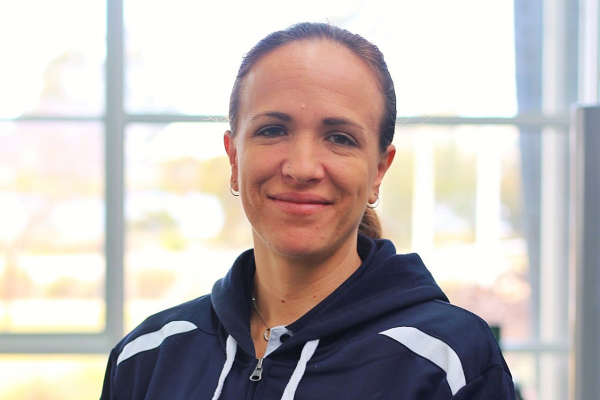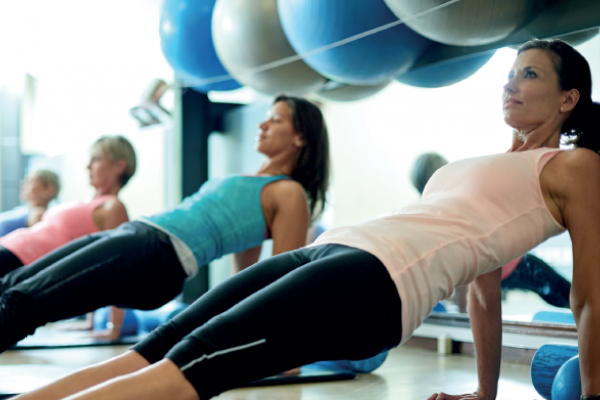Please note: this is an old article
It was published in September 2017, so the information may be out-of-date.
With an increase in awareness around health and fitness, there is a lot of pressure on expectant and new mums to maintain super fitness levels during pregnancy and bounce straight back into it once they get the all clear from their doctor after having a baby.
Written by Aquamoves Fitness Instructor Carien Hesselberg
With an increase in awareness around health and fitness, there is a lot of pressure on expectant and new mums to maintain super fitness levels during pregnancy and bounce straight back into it once they get the all clear from their doctor after having a baby.
Certain considerations need to be made when exercising during pregnancy and straight after.
During pregnancy, exercise has many health benefits for both mum and baby. However you do need clearance from your healthcare provider before continuing or starting an exercise program when pregnant, as there are some instances where exercise can be harmful. You will also need to notify your fitness instructor (group fitness, personal trainer or gym instructor) of your pregnancy as soon as possible so certain modifications can be made.
Ideally you will seek a trainer who has experience in training pregnant women and who has a qualification in prenatal fitness for the safest exercise options. If you are already active before you fall pregnant, you will need to reduce your exercise intensity and any exercises that increase the intra-abdominal pressure should be avoided (there will already be extra strain on your core and pelvic floor from the growing baby).
During your final trimester, your exercise should mainly focus on birth preparation, strengthening the right muscles to help you during labour and practice relaxing the pelvic floor (a relaxed pelvic floor will minimize tearing and trauma during labour).
Once you have safely delivered your baby, take time to recover before getting back into exercise. Once you feel up to it, walks are a great way to get some endorphins going and also help to clear the cobwebs and the newborn fog that follow child birth.
Remember, there is a fourth trimester (the three-month period after baby is born) where your main focus should be recovering from the birth, bonding with your baby and establishing breast feeding. Once medical clearance to exercise is gained (usually six weeks for an uncomplicated natural delivery and eight weeks for a c-section) your first stop should be to see a Women’s Health Physiotherapist to assess you core and pelvic floor function. He/she will check for any pelvic floor dysfunction as well as assess your core for Diastasis Recti (or separated Abdominal muscles). The Physio will be able to recommend some rehabilitation exercises to help rehab the areas and rebuild your foundation. For better results, coupling that with exercise sessions taken by a qualified postnatal fitness instructor will be very beneficial to your recovery. For best results, add hypopressive training to your exercise schedule. Remember, you won’t run a marathon six weeks after straining a leg muscle, so you really shouldn’t be rushing to perform your regular exercise regime so soon after birth.
The hypopressive technique is also extremely beneficial as another rehabilitation tool. Low Pressure Fitness is a holistic approach to core and posture training based on a sequence of poses and moves in coordination with a specific breathing technique. The program is designed to act upon the different myofascial chains of the body causing improvements in overall functionality.
Some of the benefits include:
- Tones abdominal and perineal involuntary muscles
- Improves posture
- Prevents hernias
- Regulates breathing patterns
- Prevents and improves pelvic floor dysfunctions
- Improves intra-abdominal pressure management ~ pre-activation
- Decreases anxiety and increases self-confidence
- Increases and regulates blood flow
- Prevents joint and muscle injuries
- Improves core function
Low Pressure Fitness sessions are available right here at Aquamoves with Carien. You can find out how to get involved here.
In conclusion, don’t worry too much about the changes in your body. It is normal. Your body is performing a miracle growing a human life – that is massive. Instead of feeling down about the changes, celebrate them and don’t be too hasty to get your pre-baby figure back. It will come in good time. Focus on rehabilitation first and you will bounce back better and stronger than ever before!


